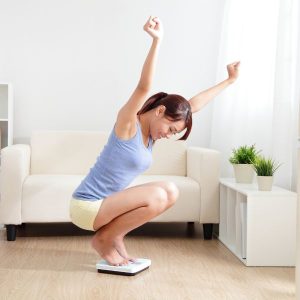While It’s Important to See a Mental Health Professional, Low-T May Contribute to Depression, and TRT for Men in Houston Could Be the Solution
Depression is a complex mental health condition that can appear at any given time in your life. However, the direct cause is sometimes low testosterone (T) that happens during the aging process.
We strongly recommend seeing a mental health expert first before coming to us, but if your diminishing testosterone level is the cause, we can help with TRT for men in Houston, TX.
Your depression might stem from an age-related hormonal decline, but there’s help.
Here’s What Science Has to Say
The debate has gone back and forth about testosterone’s relationship with depression. One study conducted on 1,890 men showed a significant difference between the placebo group and the group receiving testosterone therapy. The ones taking testosterone had improvement in their depression symptoms, while the ones who didn’t take it didn’t experience the same effect.
Low T levels come with a number of symptoms that science backs, such as difficulty achieving and maintaining an erection, a low sex drive, a decrease in muscle mass, and a loss of strength. All of this can weigh heavily on a man’s mind, as you can imagine.
However, depression symptoms go beyond that in men with low-T levels. You may have a continuous feeling of sadness, a loss of self-esteem, and troubling thinking. While these can come with age, researchers have established a correlation. They, however, haven’t determined what the cause is.
It’s also important to note that hormonal decline looks different in each person who walks through the door. Sometimes, it affects other hormone levels. Some men respond with no noticeable mental changes, while others may experience several noticeable mental and physical changes.
Not to mention, each man starts with a different level of testosterone. For instance, an adult male’s level can range between 265 and 923 nanograms per deciliter.
While all men will have some level of decrease, there’s no specific timeline or set amount it will decrease. Though on average, a man loses one percent per year starting at age 30, not every man starts losing at that time. Plus, not all guys are losing that much, and some are losing more.
Signs Depression Could Be Testosterone Related
We can’t stress enough that seeing a mental health specialist first is the best way to figure out if your depression could be due to your testosterone decreasing. They can rule out other conditions.
And keep in mind that depression, low testosterone, and other conditions can have overlapping symptoms, making it necessary to see a professional to know for certain. For one, you may notice that you have less energy than usual. Although depression can certainly cause you to feel fatigued, it’s also a sign that your T level is decreasing.
Depression can come on suddenly or gradually when it comes to your hormones. You may notice you were once emotionally stable and now you’re experiencing anger, mood swings, or irritability that’s out of the ordinary for you.
You may notice your body composition is changing, which doesn’t typically happen with standard depression. You may gain or lose weight if you’re not eating or are consuming more food than normal due to depression. However, unless you lose an extreme amount of weight, it shouldn’t affect your muscle mass.
How Dr. Shel Will Assess You
Whether you visit a mental health practice first or not, Dr. Shel will conduct a thorough examination to gauge your depression and determine if it could be hormonal.
Our practitioner will ask you questions about the symptoms you’re experiencing, when they began, and their severity. For instance, she’ll ask you if you’re experiencing erectile dysfunction or how your sex drive has been lately, and in general. She encourages you to be open and honest. While you may feel embarrassed, it’s often a part of the aging process. And by knowing the truth, she can more accurately diagnose you.
Dr. Shel will want to know about any current mental health disorder diagnoses you have. You’ll also need to ask questions about your lifestyle, such as your diet and exercise regimen.
Our practitioner will consider your weight into the mix as well because you may naturally be producing more cortisol, which leads to your symptoms. Or, the excess weight could be causing inflammation that is interfering with your neurotransmitter levels.
Other factors that Dr. Shel will consider include:
- Non-mental health conditions
- Family history
- Age
Part of the assessment will also include blood work to determine your hormone levels. It’ll check your total testosterone and free testosterone (the hormone not found bound to proteins).
Depending on your symptoms, Dr. Shel may rule out thyroid issues by checking your levels. If our doctor can’t pinpoint the problem, she may recommend you visit your PCP or a mental health professional.
However, if it turns out to be a testosterone deficiency, she can provide TRT for men in Houston, TX, to raise testosterone levels and balance one’s hormones.
Learn more here: Be the Best You Possible in 2025 with Testosterone Replacement Therapy
Start Feeling Better Today With TRT for Men in Houston, TX
 If you’re feeling moody or depressed lately and it isn’t seeming to improve, contact Dr. Shel today. Hormone replacement therapy may be able to help if your decreasing levels are the cause.
If you’re feeling moody or depressed lately and it isn’t seeming to improve, contact Dr. Shel today. Hormone replacement therapy may be able to help if your decreasing levels are the cause.
If they aren’t the cause, she can give you thyroid treatment if that’s the cause. There’s also the option of adrenal fatigue treatment.
Please check out our reviews if you’re skeptical click here. You’ll see that Dr Shel is dedicated to clients and their care.
Book an appointment at Dr. Shel Wellness & Aesthetic Center today to start feeling like yourself once again, or at least eliminate one possible cause of your depression symptoms. Call (281) 313-7435.


















